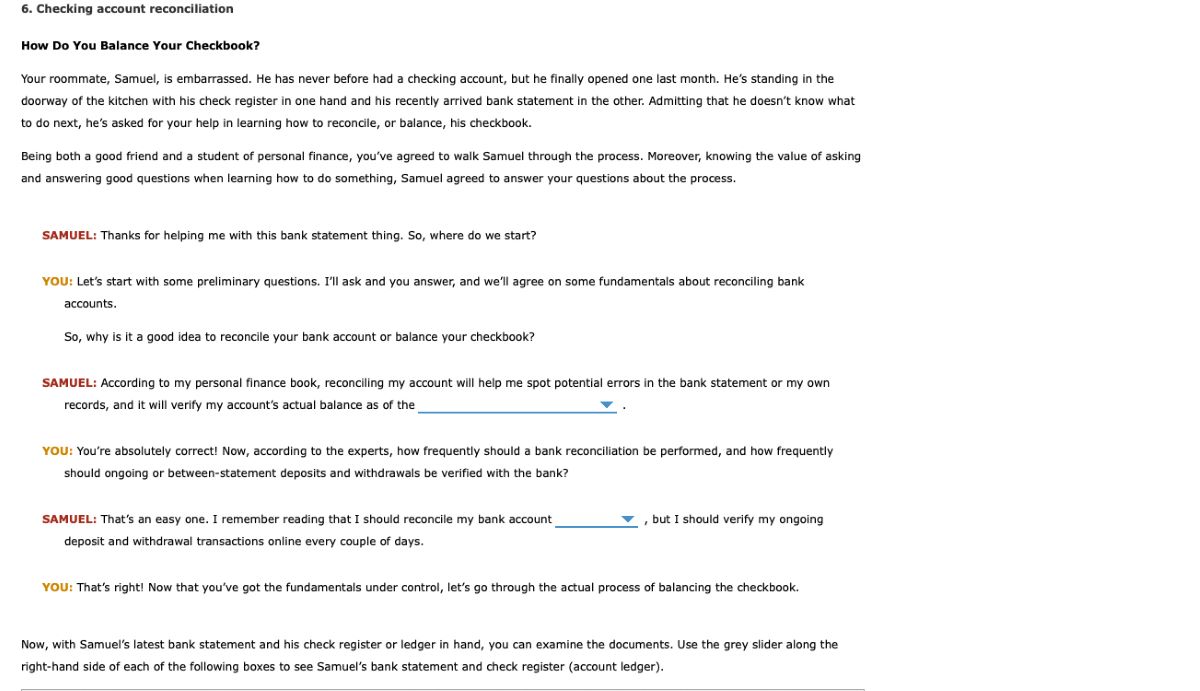

Finance
When Dealerships Check Your Credit
Modified: March 5, 2024
Discover how dealerships check your credit before you finance your next vehicle. Understand the process and what it means for your borrowing power.
(Many of the links in this article redirect to a specific reviewed product. Your purchase of these products through affiliate links helps to generate commission for LiveWell, at no extra cost. Learn more)
Table of Contents
- Introduction
- The Importance of Credit Checks for Dealerships
- How Dealerships Check Your Credit
- Types of Credit Checks Done by Dealerships
- Understanding the Impact of Credit Checks on Your Credit Score
- What Dealerships Consider When Reviewing Your Credit
- Tips for Managing Your Credit when Applying for Auto Loans
- How to Protect Your Credit Score during the Car Buying Process
- The Role of Credit Inquiries in Financing Decisions
- Conclusion
Introduction
Welcome to the world of car buying, where dealerships have the power to check your credit and determine your eligibility for a loan. The process of purchasing a car can be exhilarating, but it also comes with its fair share of financial considerations. One of the most important aspects that dealerships take into account is your creditworthiness.
Why do dealerships check your credit, you might wonder? Well, the answer is simple: they want to assess the level of risk involved in lending you money for the purchase of a vehicle. Your credit history serves as a reflection of your financial responsibility and determines your ability to make timely payments.
Understanding how dealerships check your credit and knowing the impact it can have on your financial standing is essential for anyone considering buying a car. In this article, we will explore the different types of credit checks performed by dealerships, shed light on what dealerships take into consideration when reviewing your credit, and provide tips on managing your credit during the car buying process. So, let’s dive in!
The Importance of Credit Checks for Dealerships
Credit checks play a vital role in the car buying process, both for dealerships and consumers. For dealerships, it’s all about risk assessment. By checking your credit, they can gauge your ability to make timely payments on an auto loan. This helps them determine the level of risk involved in offering you financing options.
From a dealership’s perspective, protecting their investment is critical. They want to ensure that the loans they provide are likely to be repaid, and credit checks are a way to assess that. By reviewing your credit history, they can see your past payment behavior, outstanding debts, and any previous defaults or bankruptcies. This information helps them make an informed decision about whether to approve your loan application and what interest rate to offer.
Additionally, credit checks allow dealerships to comply with regulations and best practices. Financial institutions are required to follow certain rules when extending credit, and credit checks help ensure that these guidelines are followed. It also protects dealerships from potential fraud or identity theft by verifying the identity of the applicant and their financial stability.
For consumers, credit checks can provide an opportunity to learn more about their creditworthiness. If you have a good credit score, you can negotiate better loan terms and interest rates, saving you money in the long run. On the other hand, if your credit score needs improvement, a credit check can alert you to areas that may need attention and allow you to take steps to improve your credit before applying for financing.
While credit checks may feel intrusive, they are an integral part of the car buying process. By understanding their importance and how they are conducted, you can be better prepared and navigate the loan application process with confidence.
How Dealerships Check Your Credit
When it comes to checking your credit, dealerships have a few methods at their disposal. Understanding how these credit checks are conducted can give you insight into the process and help you prepare when applying for auto financing.
Firstly, dealerships may work with one or more major credit bureaus, such as Experian, Equifax, or TransUnion. These bureaus collect and maintain credit information on individuals and provide credit reports upon request. Dealerships can request a credit report from one or more of these bureaus to evaluate your creditworthiness.
Another method that dealerships may use is a credit scoring model. This model takes into account various factors, including your payment history, credit utilization, length of credit history, types of credit accounts, and recent credit inquiries. The dealership inputs your personal information and financial data into the credit scoring model, which generates a credit score. This score serves as an indicator of your creditworthiness and helps the dealership assess the risk involved in lending to you.
Dealerships may also rely on third-party service providers that specialize in credit evaluation and risk assessment. These providers have access to comprehensive databases and algorithms that analyze credit data to determine the likelihood of loan repayment. By utilizing these services, dealerships can obtain a more in-depth analysis of your credit profile.
It’s important to note that when a dealership checks your credit, it generates what is known as a “hard inquiry” on your credit report. Hard inquiries can have a temporary negative impact on your credit score, so it’s wise to be selective when applying for auto loans. Multiple hard inquiries within a short period of time can give the impression that you are seeking credit irresponsibly, which may raise concerns for lenders.
By understanding how dealerships check your credit, you can be aware of the methods they may employ and the potential impact on your credit profile. This knowledge can help you navigate the process more confidently and strategically manage your credit when applying for auto financing.
Types of Credit Checks Done by Dealerships
When dealerships check your credit, they can perform different types of credit checks depending on the information they need and the stage of the car buying process. Let’s explore the three main types of credit checks commonly done by dealerships:
- Soft Credit Check: A soft credit check, also known as a soft inquiry, does not impact your credit score. It provides dealerships with a basic overview of your credit history, including your payment habits, outstanding debts, and any previous bankruptcies or defaults. Soft credit checks are commonly used during the initial stages of the car buying process to pre-qualify potential buyers without committing to a formal loan application.
- Hard Credit Check: A hard credit check, also known as a hard inquiry, is performed when you formally apply for auto financing. Unlike a soft credit check, a hard credit check can have a temporary negative impact on your credit score. This is because it signals to credit reporting agencies that you are actively seeking credit. However, the impact is usually minimal and typically recovers within a few months. Hard credit checks provide dealerships with a comprehensive credit report, allowing them to assess your creditworthiness more accurately.
- Dealer-Facilitated Credit Application: In some cases, dealerships may facilitate the credit application process on your behalf. They act as an intermediary between you and financial institutions, such as banks or credit unions, helping you submit loan applications. This approach allows dealerships to streamline the financing process, but keep in mind that the credit checks conducted in this scenario can still have a temporary impact on your credit score.
It’s important to note that while soft credit checks do not affect your credit score, hard credit checks do. Therefore, it’s crucial to be mindful of the number of hard inquiries you allow, especially within a short period of time. If you’re shopping around for the best loan terms, try to do so within a focused timeframe to minimize the impact on your credit score.
Understanding the different types of credit checks performed by dealerships can help you navigate the car buying process more effectively. It allows you to be aware of how each type of credit check may affect your credit score and make informed decisions when applying for auto financing.
Understanding the Impact of Credit Checks on Your Credit Score
When dealerships check your credit as part of the car buying process, it’s important to understand the potential impact on your credit score. Credit checks, also known as credit inquiries, can affect your credit score to varying degrees depending on the type of inquiry.
Firstly, it’s important to differentiate between soft and hard credit checks. Soft credit checks, which are typically done during the pre-qualification stage, do not have any impact on your credit score. They are considered as more informative inquiries and are not visible to other lenders or creditors.
On the other hand, hard credit checks, which occur when you formally apply for auto financing, can have a temporary impact on your credit score. Each hard inquiry may cause a small deduction in your score, usually a few points. However, the impact tends to be minimal and can recover over time as you manage your credit responsibly.
It’s worth noting that credit scoring models typically take into account the time frame in which multiple hard inquiries occur. If you are shopping around for auto loans within a short period, these inquiries might be treated as a single inquiry and have less impact on your credit score.
To mitigate the impact of credit checks on your credit score, it’s advisable to be selective about the number of credit inquiries you allow. Only apply for credit when you’re serious about the purchase and have done your research. Limiting the number of hard inquiries can help protect your credit score.
It’s also important to remember that credit checks are just one factor in determining your overall creditworthiness. Your payment history, credit utilization, length of credit history, types of credit accounts, and recent credit inquiries all contribute to your credit score. By maintaining a positive credit history and practicing responsible credit management, you can ensure a healthy credit score even with occasional credit checks.
In summary, credit checks during the car buying process can impact your credit score, primarily through hard inquiries. However, the impact is usually minimal and recovers over time. By being selective about credit inquiries and managing your overall credit responsibly, you can maintain a healthy credit score while financing your car purchase.
What Dealerships Consider When Reviewing Your Credit
When dealerships review your credit, they take into consideration several factors to assess your creditworthiness and determine the terms of your loan. Understanding what dealerships consider can help you be more prepared when applying for auto financing. Here are the key factors that dealerships take into account:
- Credit Score: Your credit score is a numerical representation of your creditworthiness. It is based on factors such as your payment history, credit utilization, length of credit history, types of credit, and recent credit inquiries. Dealerships often use credit scoring models to evaluate your credit score and determine the level of risk involved in lending to you. A higher credit score typically translates to more favorable loan terms.
- Payment History: Dealerships review your payment history to assess your past behavior in repaying debts. Timely payments and a history of meeting financial obligations can have a positive impact on your creditworthiness. On the other hand, late payments, defaults, or bankruptcies may raise concerns for dealerships and affect their decision to approve your loan application.
- Debt-to-Income Ratio: Your debt-to-income ratio is a measure of how much of your income goes towards paying off your debts. Dealerships consider this ratio to evaluate your ability to take on additional debt and make monthly loan payments. A lower debt-to-income ratio demonstrates a stronger financial position and may lead to more favorable loan terms.
- Length of Credit History: The length of your credit history is an important factor for dealerships to assess your creditworthiness. A longer credit history provides a more comprehensive picture of your financial habits and demonstrates a track record of managing credit responsibly. It shows dealerships that you have experience in handling credit obligations and can impact the terms of your loan.
- Type and Stability of Income: Dealerships consider the type of income and its stability when reviewing your credit. Regular employment, a steady source of income, and a consistent employment history can give dealerships confidence in your ability to make loan payments on time. This is particularly important for individuals who are self-employed or have irregular income sources.
In addition to these factors, dealerships may also consider any special circumstances or additional documentation you provide. For example, if you have recently gone through a major life event such as divorce or medical expenses, providing supporting documentation can help dealerships understand your financial situation and make a more informed lending decision.
By having a clear understanding of what dealerships consider when reviewing your credit, you can take steps to strengthen your credit profile and improve your chances of securing favorable auto financing terms.
Tips for Managing Your Credit when Applying for Auto Loans
Managing your credit effectively is crucial when applying for auto loans. By taking proactive steps to improve and maintain your credit health, you can increase your chances of securing favorable loan terms. Here are some useful tips to help you manage your credit during the car buying process:
- Check your credit report: Before applying for an auto loan, obtain a copy of your credit report from one of the major credit bureaus. Review it carefully to ensure that all information is accurate and up-to-date. If you spot any errors, contact the bureau to file a dispute and have the inaccuracies corrected.
- Pay bills on time: Consistently making your bill payments on time is one of the most important factors in maintaining a good credit score. Late payments can have a negative impact on your creditworthiness. Set up automatic payments or reminders to ensure you never miss a payment deadline.
- Pay down debt: Reduce the amount of outstanding debt you have before applying for a car loan. A lower debt-to-income ratio indicates a better ability to manage additional debt. Consider paying off high-interest credit card balances or consolidating debts to reduce your overall financial burden.
- Avoid applying for new credit: While shopping around for the best auto loan rates is encouraged, try to limit the number of new credit applications you submit within a short period. Multiple inquiries can temporarily lower your credit score, as it may indicate a higher level of risk to lenders.
- Set a budget: Determine how much you can comfortably afford as a monthly car payment before applying for a loan. Setting a realistic budget helps you avoid taking on more debt than you can handle and improves your chances of staying on track with payments.
- Negotiate loan terms: When applying for auto financing, don’t be afraid to negotiate loan terms. Compare rates and terms from different lenders and use that information to negotiate with the dealership. A lower interest rate or longer loan term can make a significant difference in the overall cost of the loan.
- Maintain stable employment: Consistent employment and a stable source of income give lenders confidence in your ability to make loan payments. If possible, avoid changing jobs or starting a new business venture shortly before applying for an auto loan.
By implementing these tips, you can position yourself for a more favorable auto loan. Remember, managing your credit is an ongoing process, and responsible credit habits will benefit not only your car purchase but also your overall financial well-being.
How to Protect Your Credit Score during the Car Buying Process
Protecting your credit score during the car buying process is crucial to ensure that you maintain a strong credit profile. Here are some essential steps to help safeguard your credit score:
- Be selective with loan applications: Limit the number of loan applications you submit. Each application triggers a hard inquiry on your credit report, which can temporarily lower your credit score. Instead, research and compare loan options beforehand to identify the most suitable lender and loan terms before submitting an application.
- Time your loan applications: If possible, try to condense your loan applications within a short period. Credit scoring models generally treat multiple inquiries within a specific timeframe as a single inquiry. Doing so minimizes the impact on your credit score.
- Understand your creditworthiness: Before applying for a loan, assess your own creditworthiness and understand where you stand. Check your credit report for any errors or inaccuracies that could negatively impact your credit score. Correcting these issues in advance can help you secure better loan terms.
- Pre-qualify for loans: Consider getting pre-qualified for an auto loan. Pre-qualification involves a soft credit check that does not affect your credit score. It gives you an idea of the interest rates and loan amounts you may qualify for. Armed with this information, you can make more informed decisions about choosing the right loan option.
- Pay bills on time: Continuously make your bill payments on time, as late or missed payments can harm your credit score. This includes payments for existing loans, credit cards, and other debts. Maintaining a track record of timely payments demonstrates financial responsibility and helps protect your credit score.
- Monitor your credit: Keep a close eye on your credit by regularly monitoring your credit report and credit score. Many credit reporting agencies offer free credit monitoring services that provide updates on any changes to your credit profile. Promptly address any suspicious or incorrect information on your report to prevent potential damage.
- Negotiate smartly: When negotiating loan terms with dealerships, be cautious of unnecessary credit inquiries. Some dealerships may submit multiple loan applications to different lenders to secure the best rates. Ask the dealership to only submit your application to your preferred lender to avoid unnecessary inquiries.
- Keep existing credit accounts: It may be tempting to close unused credit accounts, but keeping them open can actually benefit your credit score. Length of credit history and credit utilization ratio are important factors in your credit score calculation. By keeping existing accounts open and demonstrating responsible credit use, you can maintain a positive credit score.
By following these tips, you can protect your credit score and maintain a healthy credit history while navigating the car buying process. Remember, a strong credit profile not only affects your ability to secure favorable loan terms for a car but also plays a role in future financial endeavors.
The Role of Credit Inquiries in Financing Decisions
Credit inquiries play a significant role in financing decisions made by lenders, including dealerships, when considering your application for an auto loan. These inquiries provide valuable information that lenders use to assess your creditworthiness and determine the terms and conditions of the loan. Here’s a closer look at the role of credit inquiries in financing decisions:
Evaluating Creditworthiness: Credit inquiries provide lenders with insights into your credit history and financial behavior. By reviewing your credit report, lenders can assess how responsible you have been in managing your debts and making timely repayments. This information helps them evaluate the level of risk associated with lending to you. A strong credit history with a positive payment track record enhances your creditworthiness and increases the likelihood of approval for a loan.
Risk Assessment: Lenders use credit inquiries to determine the level of risk involved in extending credit. They evaluate your credit score, which is influenced by factors such as payment history, credit utilization, length of credit history, and types of credit. Your credit score provides an indication of your ability to manage debt and the likelihood of repaying the loan as agreed. Lenders rely on this information to make informed decisions about loan approval and to set interest rates and terms accordingly.
Loan Terms and Interest Rates: Credit inquiries influence the loan terms and interest rates offered to borrowers. Lenders typically offer more favorable terms to applicants with higher credit scores and credit histories that demonstrate responsible financial behavior. A strong credit profile can result in lower interest rates and more flexible loan terms, helping you save money over the life of the loan. Conversely, a lower credit score may result in higher interest rates or stricter repayment conditions.
Mitigating Fraud and Identity Theft: Credit inquiries serve as a measure to prevent fraud and identity theft. Lenders verify the information provided by applicants to ensure their identity and financial stability. This step is crucial for both the lender and the borrower, as it helps protect against fraudulent loan applications made using someone else’s identity and improves the overall security of the lending process.
Building Credit History: Credit inquiries, particularly when managed responsibly, can contribute to building a positive credit history. Regularly applying for and responsibly managing credit accounts, including auto loans, can demonstrate your ability to handle financial obligations. This, in turn, can have a positive impact on your credit score and improve your creditworthiness over time.
It’s essential to be mindful of the number and timing of credit inquiries to minimize the potential negative impact on your credit score. By carefully managing your credit, you can enhance your creditworthiness and increase the likelihood of favorable financing decisions when applying for an auto loan.
Conclusion
When buying a car and applying for auto financing, understanding the role of credit checks is crucial. Dealerships check your credit to assess your creditworthiness and determine the terms of your loan. It is important to be aware of the different types of credit checks performed, including soft and hard inquiries, and their potential impact on your credit score.
Dealerships consider several factors when reviewing your credit, such as your credit score, payment history, debt-to-income ratio, length of credit history, and stability of income. By managing your credit effectively, paying bills on time, keeping debt levels low, and maintaining stable employment, you can improve your creditworthiness and increase your chances of securing better loan terms.
Throughout the car buying process, it is essential to protect your credit score. Being selective with loan applications, timing your applications wisely, and understanding your creditworthiness can help safeguard your credit. Regularly monitoring your credit report, negotiating smartly, and keeping existing credit accounts open can also contribute to maintaining a strong credit profile.
In financing decisions, credit inquiries play a significant role. Lenders rely on credit inquiries to evaluate your creditworthiness, assess risk, and determine loan terms and interest rates. A positive credit history and responsible credit management can lead to more favorable financing decisions and ultimately save you money on your auto loan.
By taking the time to manage and protect your credit throughout the car buying process, you can optimize your chances for loan approval, secure favorable loan terms, and maintain a strong credit profile for future financial endeavors.
Remember, your credit is a valuable asset. By understanding how dealerships check your credit, knowing what they consider, and implementing the tips discussed, you can navigate the car buying process with confidence and ensure a positive impact on your credit standing.














